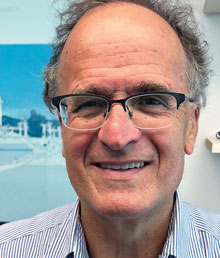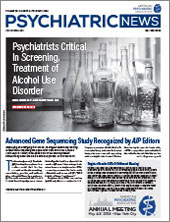As research on psychedelics has accelerated, the drugs have increasingly been spotlighted in the media. “There’s a lot of excitement and enthusiasm about the potential for psychedelics to transform the treatment of psychiatric and substance use disorders, or even just to improve overall well-being,” said Tiffany Farchione, M.D., director of the Division of Psychiatry in the Office of Neuroscience at the Food and Drug Administration (FDA).
Yet the problem with a lot of the news coverage is that it generally suggests that psychedelics are miracle drugs, Farchione continued. “That’s really putting the cart before the horse,” she said.
Farchione spoke at a session at the American Academy of Child and Adolescent Psychiatry’s annual meeting. She and David Hellerstein, M.D., addressed the therapeutic potential of psychedelics for treating mental illnesses, specifically within child and adolescent psychiatry. Hellerstein is the director of the Depression Evaluation Service at the New York State Psychiatric Institute. The session was co-chaired by Kevin Gray, M.D., and Paul Croarkin, D.O., M.S.
“As a clinician, I’m excited about this area because like many others, I’ve been frustrated that we haven’t had a lot of new treatment breakthroughs,” said Gray, assistant vice president for advancing research partnerships at the Medical University of South Carolina. “We’re seeing patients every day who are struggling, and we are looking for new therapeutics.
“But as somebody who is cautious by nature,” he continued, “I really appreciate when clinicians and regulatory authorities work together to develop these new therapeutics in ways that can be leveraged appropriately.”
There are still many questions to be answered about how psychedelics can best be used among the adult population, Hellerstein said. “I think the biggest question for child and adolescent populations is: Should research in this area be pursued?”
Hellerstein outlined the current state of research on psychedelics as therapeutics. He pointed out some of the difficulties in conducting studies in this area, such as the difficulty of blinding in psychedelic trials. Participants in these trials often have high expectations and are highly educated on the effects of psychedelics. Many of them have used psychedelics before, so they know what a trip feels like and can tell if they’ve been given a placebo. In some cases, Hellerstein said, they can be intensely disappointed that they didn’t have a trip, which can happen even when a participant has received an active drug.
“Difficulty blinding could really lead us to go down the wrong path for determining true efficacy,” Hellerstein pointed out. “We might not know our actual mechanism of action, and [it could lead to] unnecessary risks, especially for populations like children and adolescents.”
Some researchers have posited that psychedelics could have useful applications among adolescents with severe PTSD, treatment-resistant depression, and social anxiety caused by autism as well as in pediatric palliative care, Hellerstein said. Yet there has been very little research on psychedelic use among youth, with many researchers urging caution, especially regarding how psychedelics could impact the developing brain. Much of the research that is available on psychedelics and youth dates back decades, to the 1960s-1970s, and Hellerstein explained that many of the methods used then would not be ethically sound today.
Yet with the United States potentially on the verge of approving psychedelics for the treatment of mental illnesses among adults, pharmaceutical companies may soon be interested in starting trials involving adolescents.
Farchione pointed out that the FDA has the authority to require pediatric studies when new drugs are approved for the adult population. “We actually do require companies to provide a plan for pediatric drug development no later than 60 days after their end-of-phase-2 meetings,” she said, though she added that there are certain circumstances in which companies can delay the development of those plans. But generally, she continued, companies should be planning their pediatric programs even before starting their phase 3 studies. “At the FDA, we’ve started to think about what those pediatric programs might look like for these products because some of these [psychedelic drug] programs are actually in phase 3 already,” she said.
She explained that it’s not enough to recognize that psychedelics have therapeutic potential. “We need to take a really cautious approach in terms of study design and inclusion and exclusion criteria, such as definitely not including anyone with a family history of psychosis or bipolar disorder,” she said. “Those are the kinds of things that we would consider as we’re looking at the study designs. We want to do our best … to make the studies as safe as possible while still being able to answer meaningful questions.” ■


